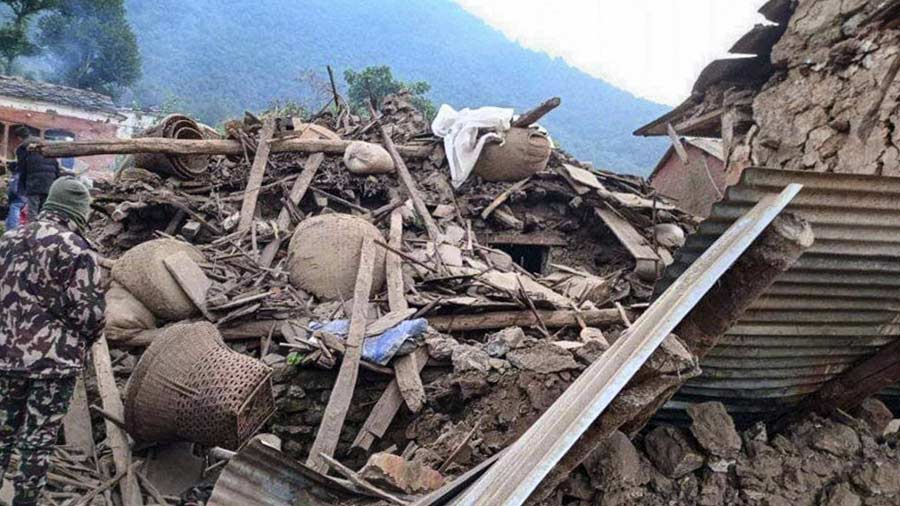Rescuers raced on Tuesday to find survivors in the rubble of thousands of buildings brought down by a 7.8 magnitude earthquake and multiple aftershocks that struck eastern Turkey and neighbouring Syria, with the discovery of more bodies raising the death toll to more than 5,000.
Countries around the world dispatched teams to assist in the rescue efforts, and Turkey’s disaster management agency said more than 24,400 emergency personnel were now on the ground.
But with such a wide swathe of territory hit by Monday’s earthquake and nearly 6,000 buildings confirmed to have collapsed in Turkey alone, their efforts were spread thin. Attempts to reach survivors were also impeded by temperatures below freezing and close to 200 aftershocks, which made the search through unstable structures perilous.
Nurgul Atay told The Associated Press she could hear her mother’s voice beneath the rubble of a collapsed building in the city of Antakya, the capital of Hatay province, but that her and others efforts to get into the ruins had been futile without any rescue crews and heavy equipment to help.
“If only we could lift the concrete slab we’d be able to reach her,” she said. “My mother is 70-years-old, she won’t be able to withstand this for long.”
Across Hatay province, just southwest of the earthquake’s epicentre, officials say as many as 1,500 buildings were destroyed and many people reported relatives being trapped under the rubble with no aid or rescue teams arriving. In areas where teams worked, occasional cheers broke out through the night as survivors were brought out of the rubble.
The quake, which was centred in Turkey’s province of Kahramanmaras, sent residents of Damascus and Beirut rushing into the street and was felt as far away as Cairo.
Sebastien Gay, the head of mission in Syria for Doctors Without Borders, said health facilities in northern Syria were overwhelmed with medical personnel working around “around the clock to respond to the huge numbers of wounded”.
In Turkey’s Hatay province, thousands of people sheltered in sports centres or fair halls, while others spent the night outside.
Aid crossing closed
The only crossing between Syria and Turkey that is approved by the UN for transporting international aid intoSyria is closed because of earthquake damage to roads around it, according to UN officials.
The crossing, known as Bab al-Hawa, has been the lone link for aid for the past nine years.











